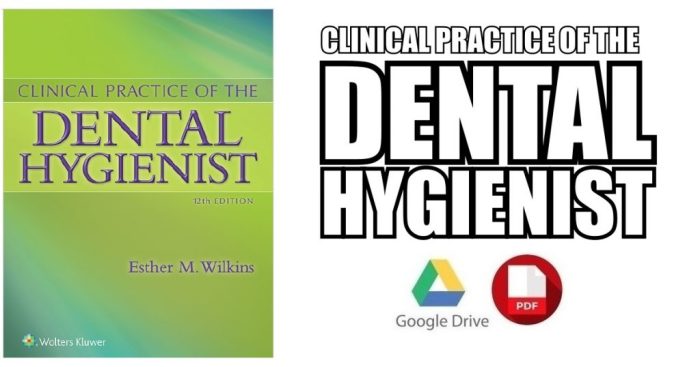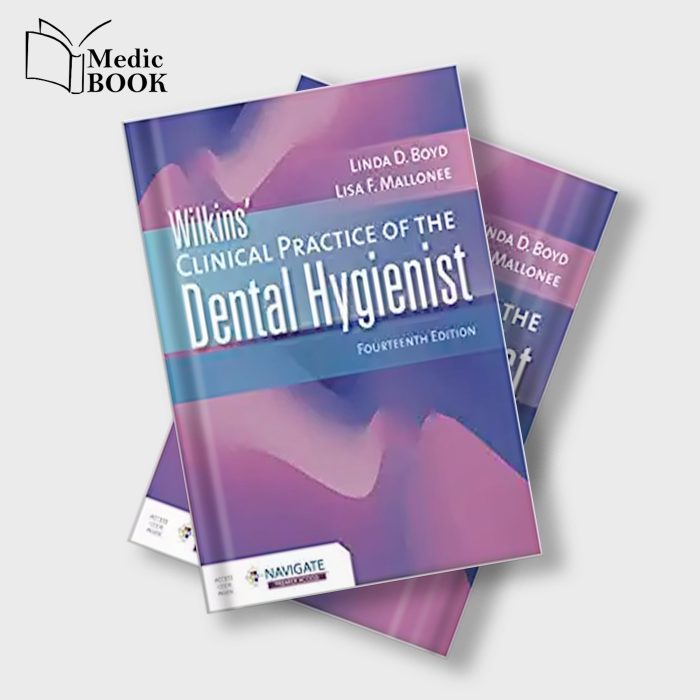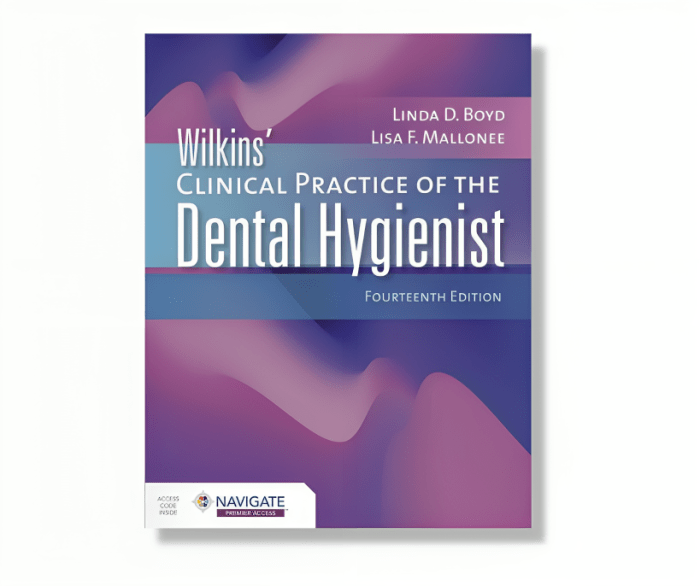Clinical practice of the dental hygienist 14th edition – The Clinical Practice of the Dental Hygienist, 14th Edition, provides a comprehensive overview of the role and responsibilities of dental hygienists in modern healthcare. This authoritative text guides readers through the assessment, diagnosis, prevention, and management of oral health conditions, emphasizing the importance of patient education and interdisciplinary collaboration.
With its clear and concise writing style, this book is an essential resource for dental hygiene students and practicing professionals seeking to enhance their knowledge and skills in delivering high-quality patient care.
Introduction to the Clinical Practice of the Dental Hygienist
Dental hygienists are licensed healthcare professionals who provide preventive and therapeutic oral care to patients. They work under the supervision of dentists and play a vital role in maintaining oral health and preventing oral diseases.
The scope of practice for dental hygienists includes:
- Assessing patients’ oral health needs
- Performing preventive procedures, such as cleanings and fluoride treatments
- Providing therapeutic treatments, such as scaling and root planing
- Educating patients on oral hygiene and disease prevention
The clinical practice of dental hygiene is essential for maintaining oral health and preventing oral diseases. Dental hygienists provide a variety of services that help patients achieve and maintain healthy smiles.
Assessment and Diagnosis in Dental Hygiene Practice

The assessment process in dental hygiene involves gathering information about the patient’s oral health history, current oral health status, and risk factors for oral diseases. This information is used to develop a treatment plan that meets the patient’s individual needs.
Dental hygienists use a variety of diagnostic tools and techniques to assess patients’ oral health, including:
- Visual examination
- Radiographs
- Periodontal probing
- Saliva testing
Dental hygienists play a vital role in developing treatment plans for patients. They work with dentists to determine the best course of treatment for each patient, based on their individual needs and risk factors.
Preventive and Therapeutic Procedures in Dental Hygiene
Preventive procedures in dental hygiene are designed to prevent oral diseases and maintain oral health. These procedures include:
- Cleanings
- Fluoride treatments
- Sealants
- Patient education
Therapeutic procedures in dental hygiene are designed to treat oral diseases and restore oral health. These procedures include:
- Scaling and root planing
- Periodontal surgery
- Restorative procedures
- Patient education
Patient education is an essential part of both preventive and therapeutic care. Dental hygienists provide patients with information about oral hygiene, disease prevention, and treatment options. This information helps patients make informed decisions about their oral health care.
Management of Oral Health Conditions
Dental hygienists play a vital role in managing oral health conditions, such as:
- Gingivitis
- Periodontitis
- Dental caries
- Oral cancer
Dental hygienists provide a variety of services to manage oral health conditions, including:
- Cleanings
- Fluoride treatments
- Scaling and root planing
- Periodontal surgery
- Patient education
Dental hygienists work with dentists to develop treatment plans for patients with oral health conditions. They also provide patients with information about their condition and how to manage it.
Communication and Patient Education in Dental Hygiene: Clinical Practice Of The Dental Hygienist 14th Edition

Communication is essential in dental hygiene practice. Dental hygienists must be able to communicate effectively with patients, dentists, and other healthcare professionals. They must also be able to educate patients on oral hygiene and disease prevention.
Dental hygienists use a variety of communication techniques to build rapport with patients and provide them with information about their oral health. These techniques include:
- Active listening
- Empathy
- Clear and concise language
- Visual aids
Patient education is an essential part of dental hygiene practice. Dental hygienists provide patients with information about oral hygiene, disease prevention, and treatment options. This information helps patients make informed decisions about their oral health care.
Professional Development and Ethical Considerations in Dental Hygiene

Professional development is essential for dental hygienists to stay up-to-date on the latest techniques and procedures. Dental hygienists can participate in a variety of professional development activities, such as:
- Continuing education courses
- Conferences
- Workshops
- Online learning
Ethical considerations are also important in dental hygiene practice. Dental hygienists must adhere to the ethical principles of the profession, which include:
- Patient autonomy
- Beneficence
- Non-maleficence
- Justice
Dental hygienists must also comply with all applicable laws and regulations.
Technology in Dental Hygiene Practice

Technology is playing an increasingly important role in dental hygiene practice. Dental hygienists use a variety of technologies to improve the quality of care they provide to patients. These technologies include:
- Digital radiography
- Laser dentistry
- Ultrasonic scalers
- Electronic health records
Technology can help dental hygienists to provide more accurate and efficient care to patients. It can also help them to communicate more effectively with patients and other healthcare professionals.
Clarifying Questions
What is the primary role of a dental hygienist?
Dental hygienists play a vital role in maintaining oral health by providing preventive and therapeutic care, including assessments, cleanings, fluoride treatments, and patient education.
What are the key responsibilities of dental hygienists in managing oral health conditions?
Dental hygienists are responsible for assessing, diagnosing, and managing a wide range of oral health conditions, including periodontal disease, caries, and oral cancer. They work closely with dentists and other healthcare professionals to develop and implement comprehensive treatment plans.
How does patient education contribute to effective dental hygiene practice?
Patient education is essential for empowering individuals to make informed decisions about their oral health. Dental hygienists play a crucial role in educating patients about proper oral hygiene techniques, dietary choices, and the importance of regular dental checkups.